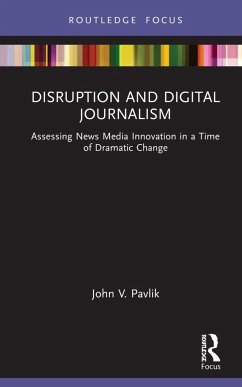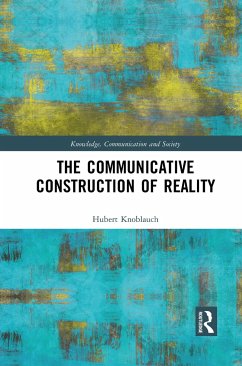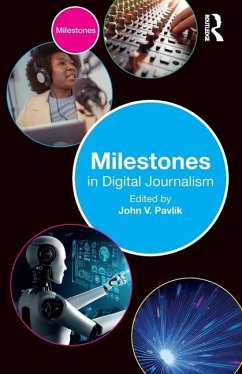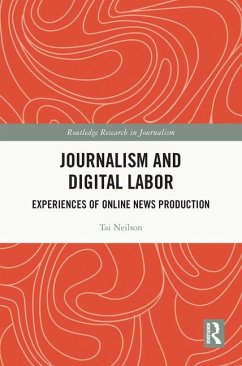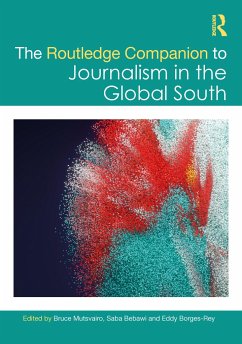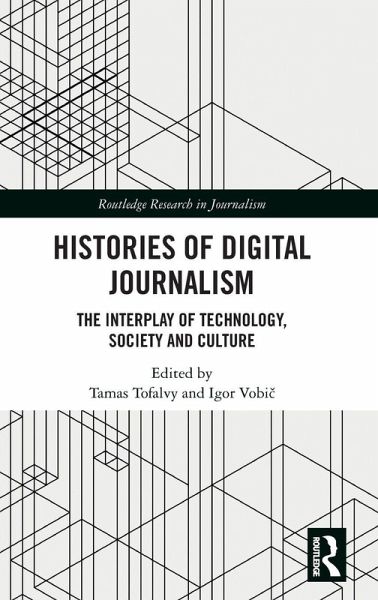
Histories of Digital Journalism
The Interplay of Technology, Society and Culture
Herausgegeben: Tofalvy, Tamas; Vobic, Igor
Versandkostenfrei!
Versandfertig in 6-10 Tagen
144,99 €
inkl. MwSt.
Weitere Ausgaben:

PAYBACK Punkte
72 °P sammeln!
Building on the momentum of the recent "historical turn" in digital media and Internet studies, this volume explores how digital journalism has developed from a historical perspective. With contributions from established and emerging scholars from Europe, Asia, South and North America, the book investigates not only how established journalistic systems transformed in the early days of digital but how the structural, technological, and cultural changes induced by digitization have reconfigured the trajectory of journalism.The book argues in support of three main claims. The first is that emphas...
Building on the momentum of the recent "historical turn" in digital media and Internet studies, this volume explores how digital journalism has developed from a historical perspective. With contributions from established and emerging scholars from Europe, Asia, South and North America, the book investigates not only how established journalistic systems transformed in the early days of digital but how the structural, technological, and cultural changes induced by digitization have reconfigured the trajectory of journalism.
The book argues in support of three main claims. The first is that emphasis should be given to the plurality of histories instead of one single digital journalism history, thereby acknowledging the complexities, interactions of social relations, cultural traditions, power configurations, and technological changes that have shaped journalism and digitization. The second is the decentralization and decolonization of digital journalism histories. The third refers to the need to highlight and demonstrate the idea that the evolution of digital journalism should be viewed as the co-construction of the social and technological realms.
With theoretical and methodological reflections on historicizing digital journalism along with original case studies or comparative inquiries into the phenomena over the decades-long digital revolution of journalism, this volume will shape the nascent field of digital journalism history and start a global critical exchange of various approaches to and aspects of historicizing digital journalism. As such, it will interest scholars and students of digital journalism, journalism history, digital media, Internet studies, and technology studies.
The book argues in support of three main claims. The first is that emphasis should be given to the plurality of histories instead of one single digital journalism history, thereby acknowledging the complexities, interactions of social relations, cultural traditions, power configurations, and technological changes that have shaped journalism and digitization. The second is the decentralization and decolonization of digital journalism histories. The third refers to the need to highlight and demonstrate the idea that the evolution of digital journalism should be viewed as the co-construction of the social and technological realms.
With theoretical and methodological reflections on historicizing digital journalism along with original case studies or comparative inquiries into the phenomena over the decades-long digital revolution of journalism, this volume will shape the nascent field of digital journalism history and start a global critical exchange of various approaches to and aspects of historicizing digital journalism. As such, it will interest scholars and students of digital journalism, journalism history, digital media, Internet studies, and technology studies.







